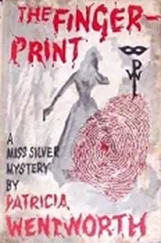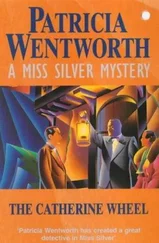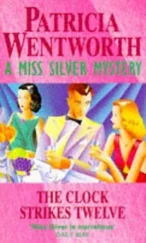Patricia Wentworth
The Astonishing Adventure of Jane Smith
A Detective Mystery
e-artnow, 2020
Contact: info@e-artnow.org
EAN 4064066389932
CHAPTER I
CHAPTER II
CHAPTER III
CHAPTER IV
CHAPTER V
CHAPTER VI
CHAPTER VII
CHAPTER VIII
CHAPTER IX
CHAPTER X
CHAPTER XI
CHAPTER XII
CHAPTER XIII
CHAPTER XIV
CHAPTER XV
CHAPTER XVI
CHAPTER XVII
CHAPTER XVIII
CHAPTER XIX
CHAPTER XX
CHAPTER XXI
CHAPTER XXII
CHAPTER XXIII
CHAPTER XXIV
CHAPTER XXV
CHAPTER XXVI
CHAPTER XXVII
CHAPTER XXVIII
CHAPTER XXIX
Table of Contents
The dining-room of Molloy’s flat had not been built to receive twenty-five guests, but the Delegates of twenty-five affiliated Organisations had been crowded into it. The unshaded electric light glared down upon men of many types and nationalities. It did not flatter them.
The air was heavy with the smoke of bad tobacco and the fumes of a very indifferent gas fire. There was a table in the middle of the room, and some dozen of the men were seated at it. The rest stood in groups, or leaned against the walls.
Of the four who formed the Inner Council three were present. Most of the Delegates had expected that the head of The Council, the head of the Federated Organisations, that mysterious Number One whom they all knew by reputation and yet had never seen in the flesh, would be present in person to take the chair. But the Delegates who had entertained this expectation were doomed to disappointment. Once again Number One’s authority had been delegated to the other three members of The Council. Of these, Number Three was Molloy, the big, handsome Irishman who rented the flat. He sat facing the door, a fine figure of a man in the late forties. Number Two leaned forward over the fire, warming his hands, his pale, intellectual face expressionless, his eyes veiled. Belcovitch, who was Number Four, was on his feet speaking. They were large, bony feet, in boots which had most noticeably not been made for him. He spoke fluently, but with a heavy foreign accent.
“Propaganda,” he said, and laughed; really he had a very unpleasant laugh—“propaganda is what you call rot, rubbish, damn nonsense. What else have we been about for years—no, generations—and where are we to-day?”
Number Two drew his chair closer to the fire with an impatient jerk. Number Four’s oratory bored him stiff. The room was cold. This gas fire was like all gas fires. He pulled his fur coat together and spoke sharply:
“Molloy, this room’s most infernally cold, and where in the world does the draught come from?”
“Propaganda is dead,” said Number Four. He looked over his shoulder with dislike at Number Two, and mopped his brow with a dirty handkerchief. Molloy, just opposite him, turned a little and laughed.
“You bring the cold with you, Number Two,” he said. “Here’s Number Four as hot as his own speeches. You’ve got all the fire, and the door’s shut, and a screen in front of it, so what more do you want?”
“Propaganda is dead,” repeated Number Four. He stood with his back to the door. Only the top panel of it showed above the black screen which had been drawn across it. The screen had four leaves. On each leaf a golden stork on one leg contemplated a golden water-lily. The light shone on the golden birds and the golden flowers.
Number Four thrust his handkerchief back into his pocket, and rapped sharply on the table. It was covered with a red cloth which had seen better days. Number Fourteen had upset the ink only a few moments before, and a greenish-purple patch was still spreading amidst the crimson.
Belcovitch leaned forward, both his hands on the table, his raucous voice brought to a dead level. “Instead of propaganda, what?” he said. “Instead of building here, teaching there, what? That is what I’m here to-night to tell you. To-morrow you all go to your own places, each to his post; but before you go, I am authorised to prepare you for what is to come. It will not be to-day, but it may be to-morrow, or it may not be for many to-morrows yet. One final stage is lacking, but in essentials The Process is complete. Propaganda is dead, because we no longer need propaganda. Comrades”—his voice sank a little—“there are enough of us. Every city in the world has its quota. What The Process will effect”—he paused, looked round, caught Number Two’s slightly sardonic expression, and struck the table with his open hand—“what The Process will effect is this,” he cried—“in one word, Annihilation of the whole human race! Only our organisation will be left.”
“Now what I am instructed to tell you is this,”—he spoke evenly, swiftly, statement following statement—never had the attention of an audience been so fully his; and then suddenly the thread was broken. With a loud grating sound, Number Fifteen, sitting next to Molloy, pushed his chair back, and sprang to his feet.
“The door!” he shouted. “The door!” Every man in the room looked where Fifteen was looking. Above the water-lilies and the storks, where the top panel of the door had shown, there was a dark, empty space. The door was open.
Number Four whipped out a revolver and dragged the screen away. The door was open, and in the doorway stood a girl in her nightdress. Her hands were stretched out, as if she were feeling her way. Her eyes, of a greenish hazel in colour, were widely opened, and had a dazed expression. Her brown hair hung in two neat plaits. Her feet were bare. Molloy pushed forward quickly.
“Well, there, if that wasn’t the start of our lives,” he said, “and no reason for it when all’s said and done. It’s my daughter, Renata, comrades, and she’s walking in her sleep. Now I’ll just take her back to her room and be with you again.”
“A minute, I think, Molloy,” said Number Two. He got up slowly out of his chair, and came across to where the girl stood motionless, blinking at the light. “I said there was a most infernal draught. Will you come in, Miss Molloy?” he added politely, and took the girl by the hand. She yielded to his touch, and came into the room, shivering a little. Some one shut the door. Molloy, shrugging his shoulders, pulled the crimson cloth from the table and wrapped it about his daughter. The ink-soaked patch came upon her bare shoulder, and she cried out, cast a wild look at the strange and terrifying faces about her, and burst into a flood of tears.
Molloy, standing behind her, looked around as she had looked, and his face darkened. Number Four had his back against the door, and his revolver in his hand. There was only one face in the whole circle that was not stamped with suspicion and fear, and behind the fear and the suspicion there was something icy, something ruthless. Number Two, with a slightly bored expression, was feeling in his waistcoat pocket. He produced a small glass bottle, extracted from it a tiny pellet, and proceeded to dissolve it in the glass of water which had stood neglected at Number Four’s right hand.
“Now, Miss Molloy,” he said, but Molloy caught him by the wrist.
“What the devil——” he stammered, and Number Two laughed.
“My dear Molloy,” he said, “how crude! You might know me better than that.”
He held the glass to Renata’s lips, and she took it and drank. When she had set down the glass, she felt her way to a chair and leaned back with closed eyes. The room seemed to whirl about her. A confusion of sound was in her ears, loud, angry, with sentences that came and went. “If she heard,”—then another—“How long was she there? Some one must have seen the door open.”
Читать дальше












